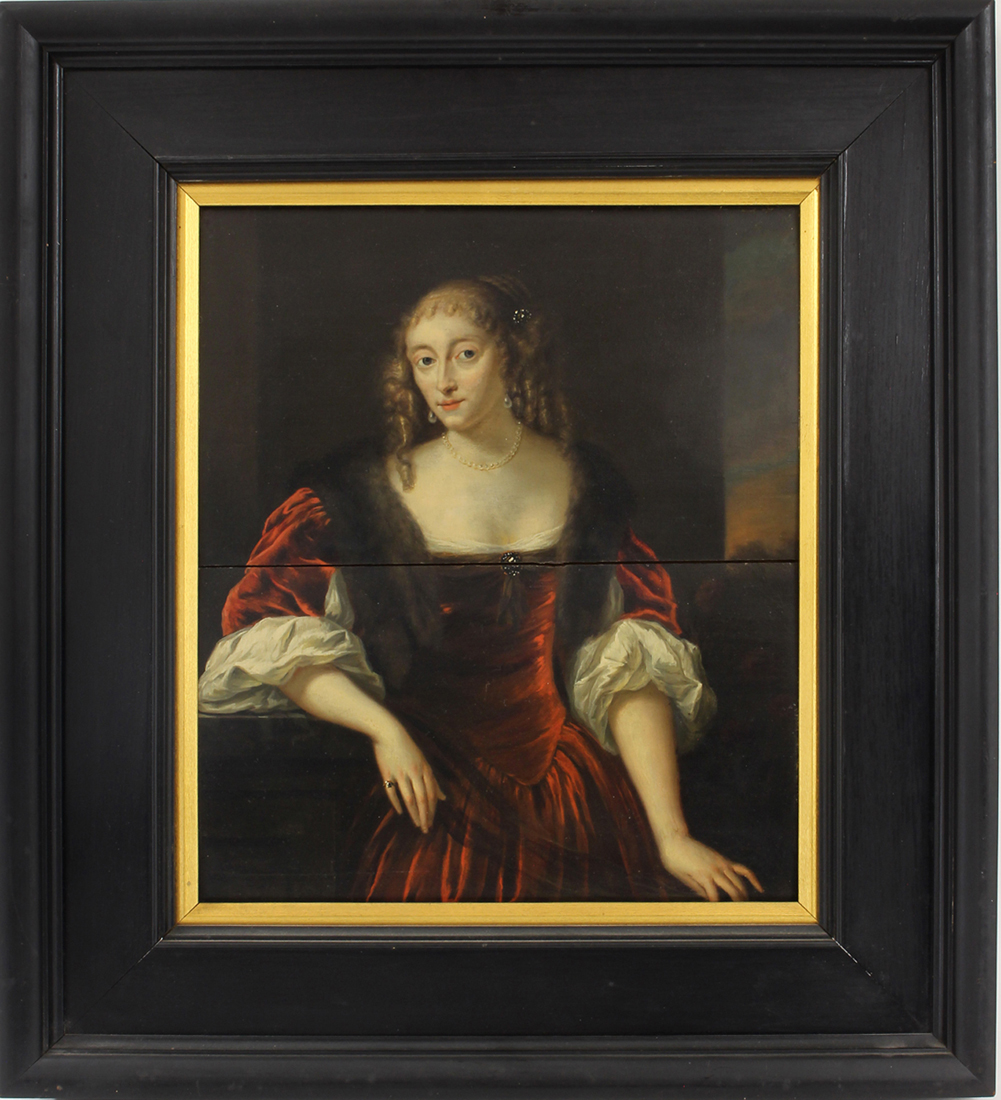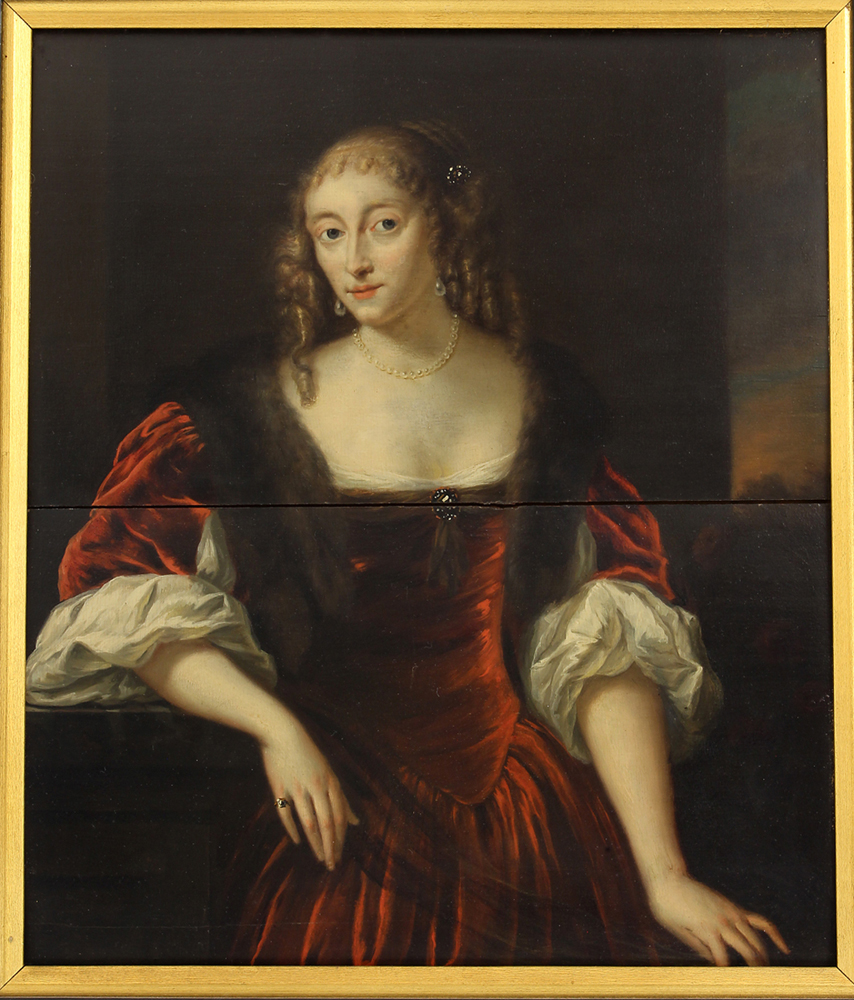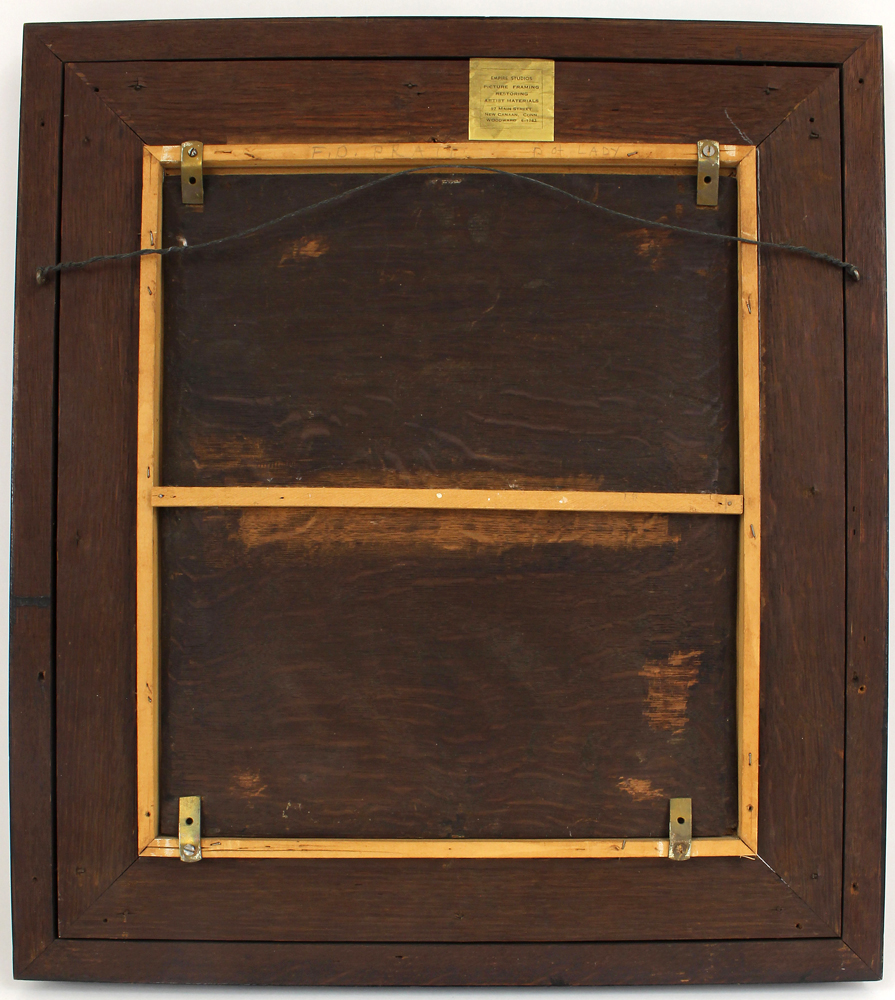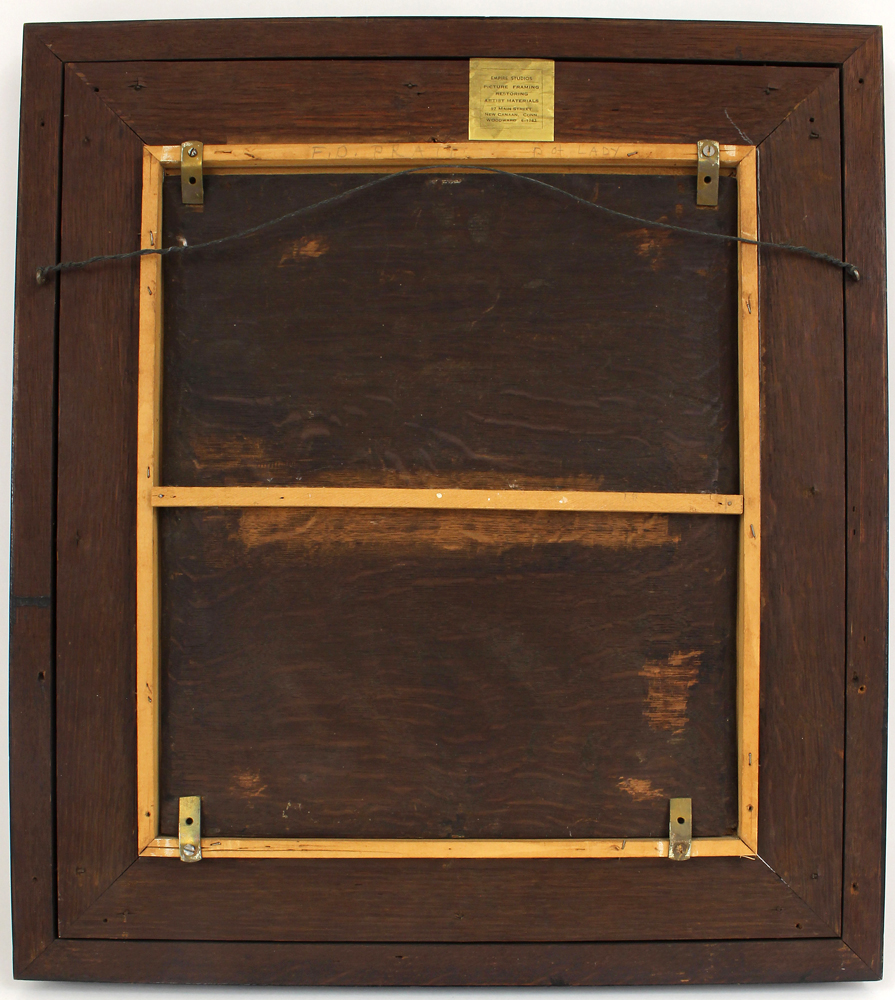DUTCH, 17th c.
portrait of Wendela (Bicker) DeWitt, (1635-1668)
wife of Dutch statesman Johan DeWittt (1625-1672)
o/p, 15 by 13 in., ebonized frame, total 22.5 by 20.25 in.
From the John DeWitt Pratt, estate, Cambridge, MA.
Bertha DeWitt of Hartford, CT, a direct descendant of Johan DeWitt, married Francis Cole Pratt in 1902. The first Pratt came to America in 1632 settling in Dorcester, MA. His descendant Francis Asbury Pratt (1827-1902) was the co-founder of Pratt & Whitney in New Britain, CT.
Additional history of Johan DeWitt available.
Johan DeWitt, born into the wealthy merchant class of Dordrecht (Dort), Netherlands, was one of the foremost European statesmen of the 17th c . In 1653, during the rule of William II of the House of Orange, the States of Holland elected DeWitt councilor pensionary of Dort, an office he held until shortly before his assassination in 1672. In 1652 his country was on the brink of ruin resulting from the war with England. His goal was to bring about peace. Since Holland was the Republic's most powerful province, he was effectively the political leader of the United Provinces as a whole. Peace was made with a treaty with Cromwell in 1654 and DeWitt restored of his country and extended its commercial supremacy in the East Indies. In 1662 he concluded peace with Portugul.
The "Orange faction", consisting of the middle class, preferred a strong leader from the Dutch Royal House of Orange, an enemy of England's Cromwell since it was aligned with the Stuarts, as a counterweight against the rich upper-classes in economic and religious matters alike. Although leaders that did emerge from the House of Orange rarely were strict Calvinists themselves, they tended to identify with Calvinism which was popular among the middle classes in the United Provinces during this time. William II of Orange was a prime example of this tendency among the leaders of the House of Orange to support Calvinism. William II was elected Stadholder in 1647 and continued to serve until his death in November, 1650.
In 1672, which the Dutch refer to as the Rampjaar ("Year of Disaster"), France and England attacked the Republic in the Franco-Dutch War. De Witt was severely wounded by a knife-wielding assassin on 21 June. He resigned as Grand Pensionary on 4 August, but this was not enough for his enemies. His brother Cornelis, particularly hated by the Orangists, was arrested on trumped up charges of treason. He was tortured (usual under the Roman-Dutch system of law that required a confession before a conviction was possible) but refused to confess. Nevertheless, he was sentenced to exile. When his brother Johan went to the jail to help him get started on his journey, both were attacked by members of The Hague's civic militia in a clearly orchestrated assassination. The brothers were shot and then left to the mob. Their naked, mutilated bodies were strung up on the nearby public gibbet, while the Orangist mob partook of their roasted livers in a cannibalistic frenzy. Throughout it all, a remarkable discipline was maintained by the mob, according to contemporary observers, making one doubt the spontaneity of the event.
Horizontal split in panel midway, braced on reverse.
Estimate: $800 - $1,200
Realized: $1,100 - Excluding Buyer's Premium
Absence of a condition statement does not imply the lot is in perfect condition, free from flaws, restoration, or the effects of aging. Condition requests can be obtained via email or telephone to our gallery. Any condition statement given either verbally or written is only an opinion and should not be treated as a statement of fact. CRN bears no responsibility for error or omission. All items are sold as is. All sales are final.
Lot 63 : DUTCH, 17th c.




Click on image to enlarge, then click on right or left side of image to view slideshow.